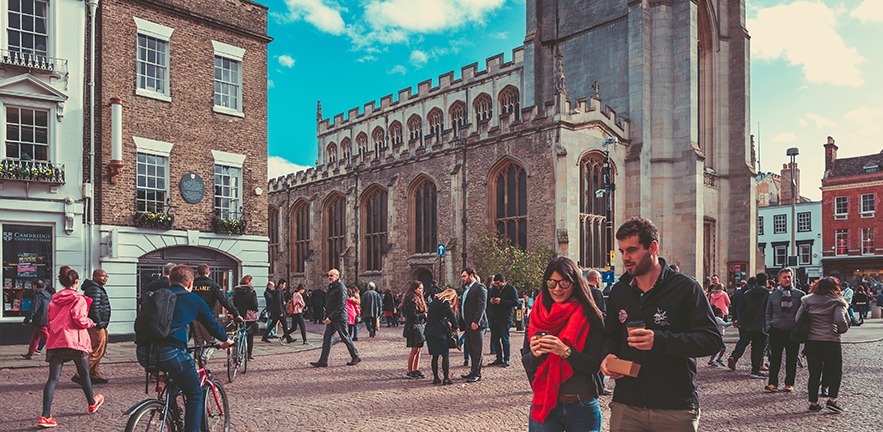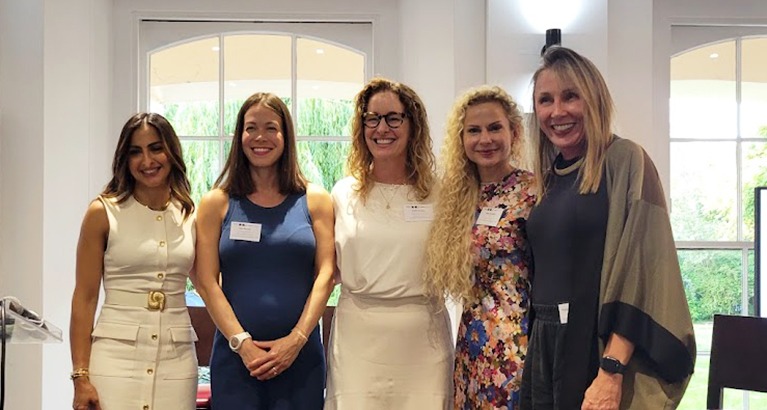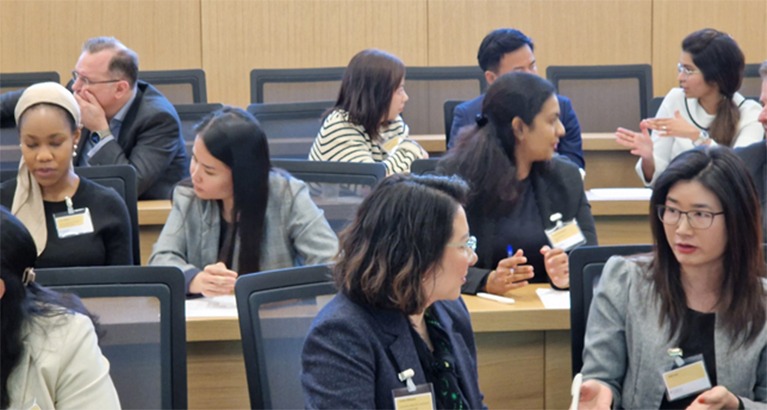From the discovery of the electron to the creation of the telescope, webcams and ARM processors, Cambridge has long been a hub for innovation and invention.
And since the founding of the Cambridge Science Park in 1970, the city has grown to become a globally recognised centre for science, engineering and technology – as well as a hotbed for entrepreneurship. Today the city attracts the largest investment per capita in Europe (5 times that of London), and boasts the highest rate of patent applications in the UK – more than twice the rate of any other city in the country.
It’s also home to Silicon Fen, or the Cambridge Cluster – a 5,000-strong collection of firms that generates an annual turnover of more than £18 billion, with incubators, innovation centres and shared workspaces found across the city. Many of these firms have links to the University, either as student-founded startups or research spinouts.
All of this makes for a highly dynamic, exciting environment in which to learn and do business – so what’s it like to study at the heart of it? From networking with founders and investors to attending industry speaker sessions, we spoke to current EMBA students and alumni to get their insights.
Networking opportunities

For Chris Walton, a 2018 EMBA graduate and founder of Marshall Futureworx – the venture building arm of Marshall, which brings advanced technologies to market – it was the networking opportunities that really helped Cambridge stand out. “Cambridge is a unique environment on so many levels,” he says.
“Being at the heart of Silicon Fen means it’s incredibly easy to start conversations with people in and around the city, and you can soon find your way to some really valuable things – be that learning from those in the know, finding people with the right skills, or partnering with other companies.
“The Cambridge network was invaluable for meeting partners and advisors for Futureworx, and we hired several great people who were as excited about our plans as we were,” he continues.
“The EMBA programme itself was also hugely helpful – it provided both the necessary insights to come up with an answer to the challenges we saw, and the time away from the day job to gather my thoughts. It also really taught me how to be an ethical and entrepreneurial leader, and that was one of the most valuable takeaways for me.”
He adds that speaker sessions and events at the Business School’s Entrepreneurship Centre meant “inspiration was never far away”, while entrepreneurial networks across the University – from Cambridge Enterprise to Cambridge University Entrepreneurs – further consolidated the experience, helping connect like-minded, ambitious students from a wide range of backgrounds.
Entrepreneurial initiatives
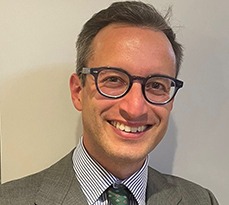
Enzo Lamberti, who graduated from the programme in 2018 and is currently Managing Director of leading food supplier LDH (La Doria), meanwhile says it was the entrepreneurial initiatives that gave Cambridge the edge. “Living in Cambridge, I had the opportunity of attending Business School events regularly,” he says.
“There were lots of initiatives to allow students across different programmes and demographics to meet and share venture ideas. During my time at the Business School, initiatives included a business acceleration programme, Pitch & Judge events and venture creation days,” he says. “These gave fellow students the chance to inspire and support each other in starting their own ventures, and many went on to follow entrepreneurial paths in their careers.
“I was privileged to support many friends and colleagues in starting their ventures, and to use my background to discuss their business plans, operations, financing and management challenges,” he says.
Science and tech
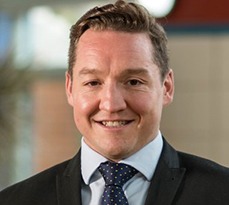
For Andrew Napier, financial controller at agriculture firm G’s Group and a current member of the 2022 cohort, it’s the opportunities around agritech in the city that have especially impressed.
“My current role is in commercial agriculture – I knew Cambridge was really prominent in areas such as biotech and fintech, but I was surprised at how much interest there is in the agriculture industry too,” he says.
“There’s a lot of enthusiasm around the industry, and the programme itself has provided so many opportunities; in the first term alone, I entered a sustainability competition for carbon farming and got the chance to liaise with former students on agritech projects. I also attended a formal dinner where I sat next to the wonderful speaker, founder and business mentor, Christiana Camisotti. I was then invited to a London-based agritech startup tackling food waste that she’s an advisor for, which was an amazing experience.
“Studying alongside other industry experts in the cohort has also been great for networking,” he continues. “And the speaker sessions provided by the EMBA and wider University have been a real bonus. I’ve seen several powerful speakers at King’s Entrepreneurship Lab, for example – from Managing Partners at BCG to the Chair of Uber UK – and they’ve been hugely inspiring.
“Joining the EMBA programme for me was all about broadening my horizons outside of accounting and finance, and gaining the skills and experience to progress further in my career,” he says. “It’s certainly done that – it’s an unbelievable place to be, and I feel privileged to study at the heart of this vibrant ecosystem.”
Executive MBA programmes
The Cambridge Executive MBA and Global Executive MBA are 20-month programmes for senior executives who want to apply their knowledge and skills as they learn.


